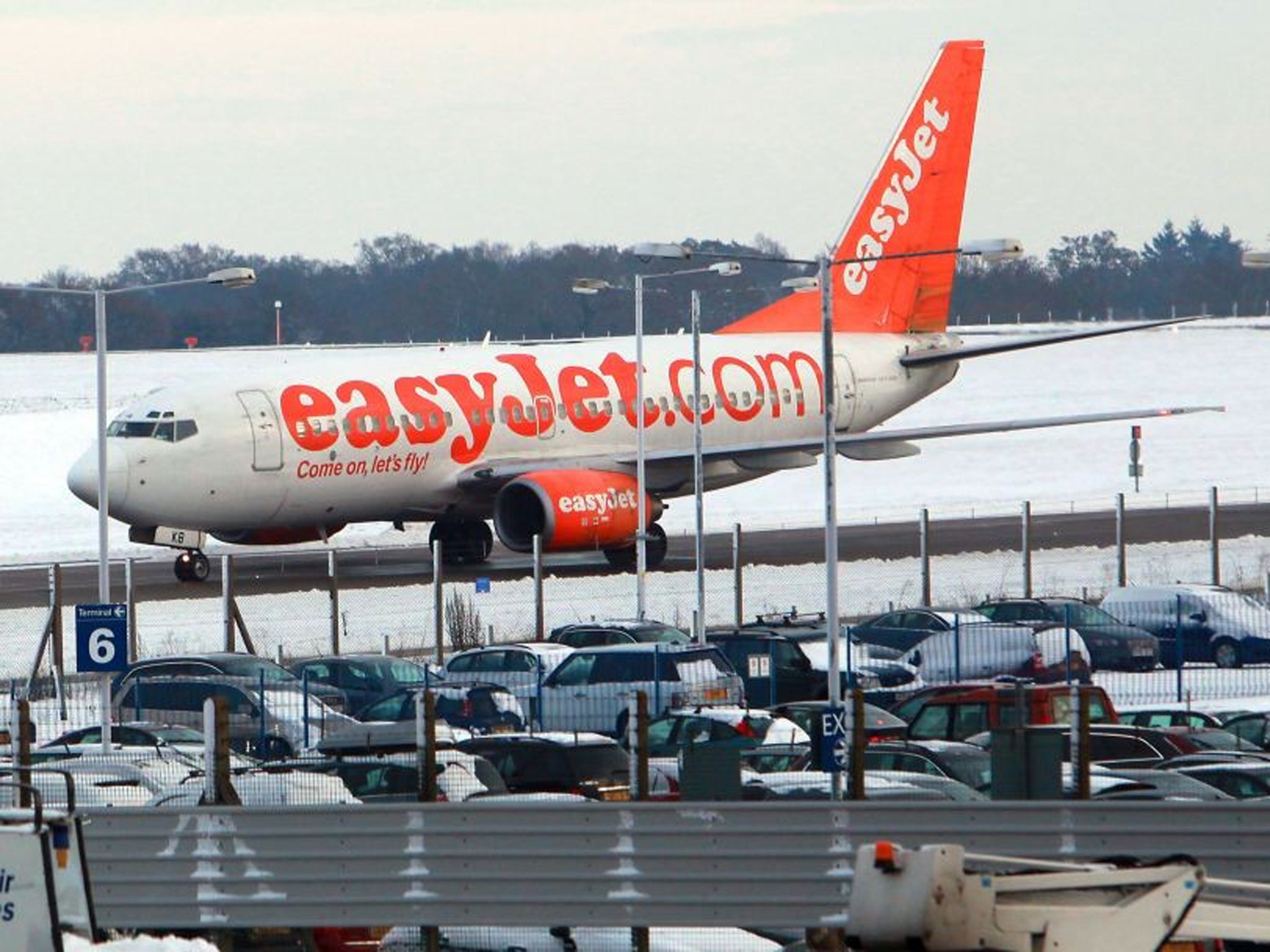easyJet denies organising whip-round to pay passengers to leave overweight plane
Flight crew accused of arranging collection to compensate four volunteers who got off at Liverpool airport

There was more than the usual tension in the Liverpool departure lounge: easyJet’s morning flight to Geneva could not take off because it was too heavily loaded.
As passengers mentally weighed their fellow travellers, the airline had to explain that some of them would have to stay behind.
A spokeswoman for the airline said the payload included “an exceptionally high proportion of male passengers and more hold luggage than usual”.
Every aircraft type has strict rules about the total weight it can carry, depending on factors such as the length of the runway, the air temperature and the distance to be flown. To compute the weight limits, airlines have the option of weighing each passenger and their baggage. But British airlines instead use an estimate of how much each passenger weighs.
The rules issued by Europe’s Joint Aviation Authorities instruct the airlines to assume that each male passenger weighs 88kg, and each female 70kg (children of either gender score 35kg).
There were 135 men and only 19 women on board the easyJet plane at Liverpool. As a result, the estimated weight was more than one tonne higher than it would have been had the genders been balanced.
easyJet denied that passengers had to organise an impromptu whip-round before their ski flight could take off.
The airline’s spokeswoman said: “In these circumstances volunteers are required to offload and easyJet offers passengers £100 in compensation and alternative flights. Four volunteers came forward and the flight departed shortly afterwards.”
An account in the Liverpool Echo gives a rather different version of events. Quoting a passenger, Simon Lay, the newspaper says the airline’s offer proved insufficiently attractive. To resolve the stalemate, said Mr Lay, passengers organised a cash collection to double the reward: “I put two quid in. I saw other people throwing in fivers.” He said the unofficial bid to entice enough people to offload proved successful, and the aircraft departed for Switzerland soon afterwards.
But easyJet’s spokeswoman said: “As far as we can establish no other arrangements between passengers were made,” adding: “There is no need for passengers to take this kind of action.”
Weight issues can prove a headache for airlines. Some airlines have been known to remove catering trolleys in order to allow a plane safely to take off. Others have offloaded baggage, but this policy is expensive for the airlines to sort out, and infuriating for the passengers whose luggage is removed.
Unusually, easyJet has no maximum weight limit for cabin baggage. Ryanair imposes a maximum of 10kg per passenger.
The episode has led to calls for passengers to be weighed at check in along with their baggage. At present airlines pay close attention to the weight of checked-in baggage on flights, but not to the weight of passengers. “DaveyJ” tweeted: “This is why fat people should pay an extra charge on flights.” But airlines fear it would prove impractical and extremely unpopular.
Subscribe to Independent Premium to bookmark this article
Want to bookmark your favourite articles and stories to read or reference later? Start your Independent Premium subscription today.

Join our commenting forum
Join thought-provoking conversations, follow other Independent readers and see their replies